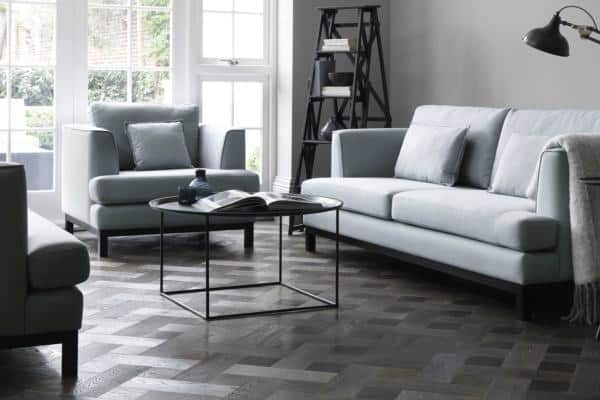DFS saw ecommerce grow by more than 180% in its latest financial year as its first half sales passed the £1bn milestone. More than a third of the sofa group’s sales took place online in a year in which shoppers did more of their shopping online – and bought more furniture.
The retail group, whose brands include Dwell and Sofology as well as its core DFS business, warns of an “exceptionally uncertain and difficult” operations environment, with logistics disruption, inflationary costs, and continued Covid absences. Customer lead times have grown as the retailer worked with “exceptional levels of demand and faced disruption to our supply chains”.
It says strong demand in the final quarter of 2021 and into 2022 has given it resilience and it is adding both warehouse capacity and staff in order to meet customer demand.
DFS today reported revenue of £1.1bn in the year to June 27 2021. That’s 47.4% up on the 2020 financial year, and 7.2% ahead of pre-Covid 2019. Online sales grew by 184.3% and in the latest, 2021, financial year, 35.3% of sales took place via digital channels. That’s up from 18.6% the year before, and from 17% in 2019. Bottom line pre-tax profits came in at £99.2m as the business recovered from a loss of £81.2m a year earlier.
DFS group chief executive Tim Stacey says: “Our record profits delivery in the last financial year is a fitting tribute to all the hard work of our colleagues and testament to the resilience and flexibility of our integrated business model. Despite numerous operational challenges during the pandemic, I’m proud that we have remained focused on our strategic agenda to lead sofa retailing in the digital age and are on track to achieve the incremental £40m of profit benefits set out in 2018. We also see further growth opportunities into the medium term derived from extending the reach of our retail brands and optimising our operating platforms.
“As we enter a new financial year, the group is very well positioned to build on its market leadership position in sofa retailing and to target further growth as we invest to strengthen our business platforms and extend our retail proposition into adjacent product categories.”
Multichannel strategy
DFS says that previous investment in digital meant it was able to adapt quickly and move in-store staff into online sales and customer service roles when stores had to shut for lockdowns during the year. As a result it grew market share, particularly during lockdowns – while demand also surged when lockdowns ended. “We believe the combination of digital and physical is the right long-term approach to address customers within the sofa market,” it says in today’s statement.
Over the last year it worked on its multichannel customer journey, improving its showrooms and its customer service while also investing in the online experience, focusing on imagery, page load speeds and checkouts and investing in text chat. Shared baskets enable shoppers to move easily between the website and showrooms. DFS says that online appointment booking continues to be popular and it is continuing to look at a live video in store proposition. It is now looking at ways to sell goods via its websites that it cannot fully stock in-store, such as beds and homewares.
Operations and logistics
While DFS has high levels of post-purchase satisfaction and remain at around 86.4%, it says its customer satisfaction scores declined to 30.7% from 42.9% the previous year – and that that reflects the delivery delays caused by delays to raw material supply and to shipping caused by Covid-19. “We are working very hard to mitigate these factors outside our control and are in the process of centralising our customer service activities to deliver improved service levels from a more efficient and flexible group-wide platform,” says DFS.
The retail group is currently building its own logistics business, The Sofa Delivery Company, which it expects will increase efficiency and customer service, offer staff more flexible working and reduce its environmental impact. The company now offers extended hours delivery seven days a week.
The business is now refurbishing its group support centre and its Sofology head office in the expectation of a more flexible hybrid working approach.
Sustainability
DFS says it has made good progress against its environment and social governance targets, with a strategy of using its influence and size responsibly, to offer more sustainable and ethical products with a “more circular product lifecycle”. Its DFS Grand Designs range, for example, includes fabric made from recycled polyester yarn, cushions made from 50% recycled plastic and sustainably sourced timber.
The retail group has committed to the BRC Climate Action to be net zero by 2040 and is currently getting advice on setting science-based targets in order to achieve them.
DFS is a Top500 retailer in RXUK Top500 research, and accounts for 80% of group revenues.









